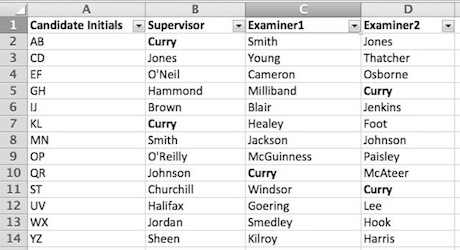
In Reinventing Discovery Michael Nielsen says that one of the great things about the Internet is the way it can connect problems with problem-solvers. Well, let’s see if that’s true. I have a problem with Excel, or rather, with a particular spreadsheet that I would like someone to solve elegantly. You can download a version of my spreadsheet here. The image below shows the contents.



